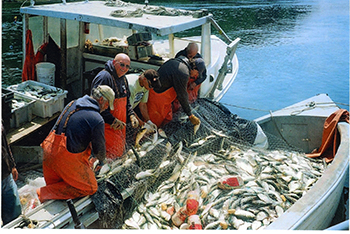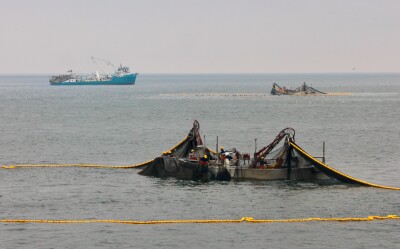Late last week, the menhaden industry learned that something good can come from having special interest groups get involved in the management of your fishery.
The Wallace clan unloads pogies in Phippsburg, Maine. A new menhaden assessment includes a broader range of the fishery outside of its predominant Southern grounds.In response to a wave of layoffs and outcry from the menhaden fleet when their quota was slashed by 20 percent in 2012, the managers responded by assigning a technical team to find as many new sources of data on the fishery as they possibly could and to assess the new model.
(I call that going above and beyond. But the truth is, any major fishery should have the resources to do exactly what the Atlantic States Marine Fisheries Commission did in this case, especially when a new model shows a drastically different assessment of the fishery than prior data indicated.)
In 2012, managers bowed to pressure by a suite of NGOs who claim the fishery is overfished. The model used to develop the 2012 assessment has since been determined to be deeply flawed. That determination was made by a team of fishery scientists whose objective is to get the science right and leave behind the politics. The new data covers a wider geographical range, as well as a deeper historical scope.
Despite what some of the opposition would have us believe, the result of the new benchmark assessment is not a backslide to the old days of so-called mismanagement. Rather, it’s a whole new world for the menhaden fishery with new sources of data in abundance.
And yet still we are not tapping the valuable resource of spotter pilots who search for schools of menhaden from the air to direct purse seine skippers toward their prey.
Read more about the menhaden fishery’s eyes in the sky in our upcoming March issue.







